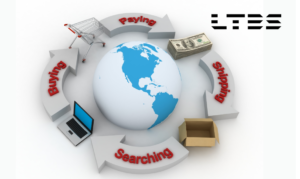Merchant Category Coding: Friend or Foe?

Merchant Category Coding: Friend or Foe?
The world of card payment processing is a complex and regulated minefield governed by world’s great brands such as: Visa, MasterCard, American Express, JCB and Union Pay. From Greek taverns displaying the logos in their window to the billion pound turnover John Lewis website, these behemoths of money remain the constant in an ever evolving payments landscape.
Across the world, every day, underwriters look at applications for merchant accounts with one initial question in mind. Irrespective of the financial standing of the business, putting aside the KYC on the directors and not even delving into the processing history, the first and most important job is to address the Merchant Category Code (MCC) that this particular merchant will fall under. And this pre determination ultimately sets the scene for the whole application and subsequent results once the merchant goes live.
How MCC Affects Payments And Conversion Rates
Yet the above represents only half of the story. So what, if a merchant is categorised under a certain code? So what, if a business is categorised under 7995 as an online gaming business. So what, if a money transmission entity falls under 6012? So what?
Of course, the answer to “so what” lies with the card issuing banks.
As Visa and MasterCard dictate the rules of the game in which the acquirer is the referee, so the issuers sit as the linesmen, constantly ensuring that when their cards are used, the cardholder is not offside and the transaction is legitimate. Furthermore, the issuer is there to protect their customer the cardholder along with their own appetite for what the card is used for – details of what type of industry the merchant is categorised under are of course contained within the MCC code.
The natural example of issuer behavior is the Unlawful Internet Gambling Enforcement Act of 2006 in the United States. Pre UIGEA, it was entirely possible to fund a poker wallet under the MCC Code 7995 – the online gambling code. However, part of the enforcement was for the issuers to block this specific MCC code across the United States. Conversions naturally dropped off a cliff as cardholders simply couldn’t use their Visa or MasterCard on any gambling related website due to the issuer block. This is an extreme example of how the MCC can impact conversion rates.
Now a greyer example…
7273 is a code with heavy implications as far as the issuers are concerned. 7273 represents dating businesses taking payments online. Yet it also represents the escort industry. Cue the 1970’s elevator music, a rather attractive lady sitting at dinner giggling with a slightly older, lonely gentleman in a brown tie looking for a little company after a hard day at the office. These are the foundations of the 7273 code when escort services and dating businesses were more in alignment.
Today of course, escort services carry a much heavier punch than a pretty girl reluctantly keeping a gentleman company over dinner for an hour. And as the escort industry has evolved into what it is today, so certain issuers have pushed to distance themselves and their customers from it by blocking the MCC Code. To the detriment of any cardholder wishing to use a dating site. This shift in ideology has naturally affected conversions for dating businesses as the cardholder’s quest for the perfect partner is intrinsically linked to escort services. The kick on from all of this is that the merchant itself struggles with conversion rates.
Confusion Over Merchant Category Codes
A recent review of an enormously complex vertical – lottery syndicates and lottery messenger services where the operator buys lotto tickets on behalf of their customers – threw up an extraordinary amount of possibilities around MCC Coding.
As previously shown, online gambling falls under 7995. Yet certain issuers around the world won’t honour the code due to regulatory requirements. The approach was to suggest that as these businesses buy and deliver the lottery tickets on behalf of their customers, they should be coded as 4215: a courier service. A courier service for the 21st century.
When challenged, the underwriting team reviewing this case wanted to know more about the warehouse, the shipping costs, the staff base and the number of vehicles that the company owned to ship the tickets. Assuming that this was another DHL or Fedex, they were astonished to hear that the tickets would be delivered electronically via email. So is it a courier service, a professional service or a gambling business?
Just as it is key for the acquirers to operate within the scheme parameters, so it is key that the merchant is on the right MCC code for their business and that the acquirers challenge the card schemes interpretation of MCC codes where appropriate.
It is incumbent on the acquirer to have a clearly stated policy to govern underwriting, monitoring and the coding of merchants, and specific procedures for reviewing merchant category coding by their agents.
Furthermore, it is this point that underpins the relationship between the merchant and the acquirer. A merchant is always looking for an understanding and flexible acquirer whose risk team are willing to take the time to learn more about the business model so that the right code can be applied. Yet as the world evolves technologically and culturally, it is worth asking whether these codes need to be redistributed and relaxed…
To give a few examples of the slightly outdated codes – 5968 represents Wig and Toupee stores whilst 5997 is specific to electric razor stores. 7999 is for miscellaneous recreation stores. Just these three alone communicate a message that just as escort services (7273) have diversified, so the requirement for electric razor stores and toupees has diminished, if not become extinct.
It should be noted that merchant category codes are global and therefore some codes may have more use in some regions than others.
Implementing new coding at issuer level is an enormously heavy duty and technical project but a necessary evil if the payments industry is to embrace a modern era. In a fast paced world, the schemes need to look closely at their own coding system and determine what is relevant and what is not. Splitting dating out from escort services might just be a good way to start…
Compliance And Responsibility
Also acquirers must step up to the plate and responsibly monitor the true nature of the activity seen on these websites. In order to provide confidence that any MCC reclassification of this nature can be effectively implemented and maintained perhaps acquirers should be mandated to support web crawler products such as G2 etc. to ensure that proper compliance is maintained for the benefit of all stakeholders




